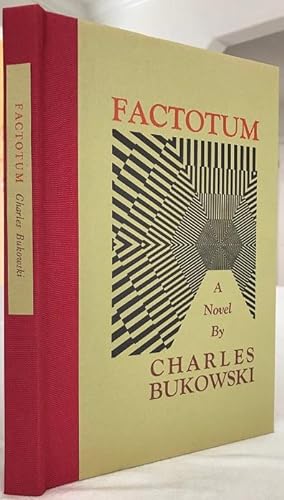
“Everything? You mean, for instance, it’s about cancer?” “I’m a writer temporarily down on my inspiration.” This trait readily appears in Factotum’s flat dialogue that begs not to be believed while simultaneously entertaining, Whatever the reasoning, the readers confound when seeking meaning, epitomizing Bukowski as the unreliable narrator whose authenticity we constantly question. Bukowski’s life bleeds into his fiction, explaining the difficulty separating writer from character, yet he did create the character, perhaps to denote the fictional nature of the portrayed life or to obfuscate reality, maybe both. (A confusion illustrated by my unintended use of “Bukowski” in place of the protagonist's name “Henry Chinaski”). Bukowski's end and Henry Chinaski's beginning become indistinguishable to many readers. The struggle for Factotum’s meaningfulness begins with the author.

Factotum’s winding path through drinking, sex, and jobs, ladened with easy judgments, snares many critics in the literary merit debate.

Urn:oclc:799285657 Republisher_date 20170627114131 Republisher_operator Republisher_time 290 Scandate 20170626105301 Scanner editor friend says Charles Bukowski is an easy target for haters, and I agree after reading some of the approximate 70,000 Goodreads’ comments and reviews characterizing Factotum as “smut,” “misogynistic,” or “the writing of a nasty drunk.” I cannot deny these descriptors, but even positive reviews often erroneously depict Bukowski as a rebel or nonconformist hero who relentlessly pursues booze and sex while rejecting work. Access-restricted-item true Addeddate 15:30:55 Bookplateleaf 0010 Boxid IA1152914 Boxid_2 CH129925 City Santa Rosa, CA Containerid_2 X0008 Donorīostonpubliclibrary Edition 21.


 0 kommentar(er)
0 kommentar(er)
